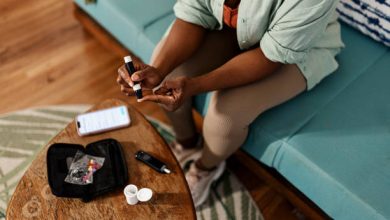Tips for Overcoming the Urge to Scratch Itchy Skin


If you’ve ever experienced the relentless itch of eczema, you know just how powerful the urge to scratch can be. It’s like a persistent itch that demands attention, and sometimes, it feels like scratching is the only relief. However, before you give in to that itch, here’s why you might want to reconsider:
The Itch-Scratch Cycle
Eczema affects around 31 million people in the US every year, and dry, itchy skin is its most common symptom. Besides the discomfort, constant itching can lead to trouble sleeping and negatively impact your mental health, draining your overall well-being. But here’s the catch: scratching might feel good in the moment, but it can make the itch worse in the long run.
Research suggests that scratching releases serotonin, a chemical linked to the body’s itch signals. While this may provide temporary relief, it can intensify the itch over time, creating a vicious cycle. Moreover, for those with eczema, further irritating the skin can lead to more severe inflammation and even skin infections.
RELATED: Is Itchy Skin Normal?
Building an Eczema-Friendly Approach
So, what can you do instead? The key is to focus on managing the itch without giving in to the urge to scratch. Here are some expert tips to help you resist the itch and take control of your eczema:
1. Seek Professional Treatment
Consult a dermatologist to explore treatment options tailored to your needs. Over-the-counter or prescription-strength corticosteroid creams and medications can help minimize flare-ups and manage your symptoms effectively.
2. Change Your Mindset
Think of the urge to scratch as a ringing phone. You can choose not to answer it. Instead of fighting the urge, try distracting yourself with activities you enjoy or practicing mindfulness techniques to shift your focus away from the itch.
3. Embrace Acceptance and Commitment Therapy (ACT)
ACT focuses on accepting discomfort and pain as natural parts of life while committing to actions that align with your values. This therapy can help you develop strategies to respond differently to your symptoms, reducing the impact of itching on your daily life.
4. Practical Measures
Keep your nails short to minimize skin damage if you do scratch. Applying ice to the itchy area can provide temporary relief and reduce inflammation. Hydrating your skin regularly can also help manage eczema symptoms.
5. Seek Support
Don’t hesitate to seek help from healthcare professionals and therapists. They can assist you in developing a comprehensive plan to




